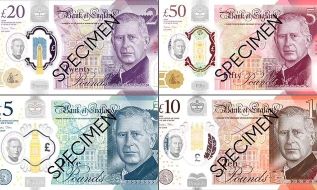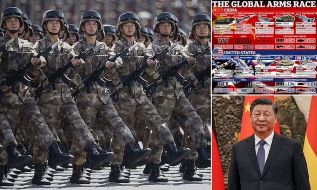BBM Bersubsidi, Harganya Harus Naik untuk Tekan Defisit Anggaran
Indonesian Govt Should Raise Subsidized Fuel Prices to Curb Budget Deficit
Reporter : Gatot Priyantono
Editor : Cahyani Harzi
Translator : Dhelia Gani
 b.jpg)
Jakarta (B2B) - Ekonom Senior Standard Chartered Bank, Fauzi Ichsan mengatakan harga bahan bakar minyak (BBM) bersubsidi harus mengalami kenaikan. Hal itu dilakukan untuk mengurangi beban belanja subsidi dan menekan defisit anggaran.
“Kalau harga BBM tidak dinaikkan, ada risiko APBN melampaui tiga persen dari PDB, padahal itu batasan dalam Undang-Undang,” kata Fauzi di Jakarta, Rabu (16/4).
Fauzi menilai akibat pemerintah terlambat menaikkan harga BBM bersubsidi, rasio defisit anggaran pemerintah terhadap PDB naik dari 1,9% di tahun 2012 ke 2,2% di tahun 2013 karena subsidi energi naik.
Fauzi mengatakan, pemerintahan saat ini atau selanjutnya, harus menaikkan harga BBM bersubsidi karena telah terjadi selisih harga keekonomisan BBM dengan harga minyak dunia yang cukup besar.
“Selisih harga ini bisa memicu penimbunan maupun penyelundupan. Namun kenaikan harga BBM bisa menaikkan inflasi dan membuat Bank Indonesia (BI) sulit untuk menurunkan suku bunga,” katanya.
Menurut dia, kenaikan harga BBM bersubsidi pada Juni 2013 belum memadai untuk menekan belanja subsidi energi, karena konsumsi masyarakat terhadap bensin maupun solar bersubsidi tetap tinggi.
“Sekarang ini, subsidi BBM itu salah sasaran karena 80 persen masih dinikmati kelas menengah atas. Selain itu, impor migas Indonesia menjadi tinggi,” kata Fauzi.
Ia memastikan apabila penghematan belanja subsidi energi bisa dilakukan, pemerintah memiliki dana yang memadai untuk program infrastruktur yang lebih bermanfaat untuk mendukung pertumbuhan ekonomi.
Jakarta (B2B) - The Indonesian government should raise the prices of subsidized fuels to cut subsidy spending and curb budget deficit, Standard Chartered Bank senior economist Fauzi Ichsan said.
"If the fuel prices are not raised the budget deficit may exceed 3 percent of the gross domestic product, which is the threshold set in the law," he said here on Wednesday.
The government should raise the prices of subsidized fuels due to large disparities between the economic fuel prices and the global oil prices, he said.
"The price disparities may prompt certain quarters to hoard and smuggle fuels. However, the fuel price hike may raise the inflation rate and thus, Bank Indonesia will find it difficult to lower its key interest rate," he said.
The subsidized fuel price hike in June 2013 was far from enough to curb energy subsidy spending as subsidized gasoline and diesel oil consumption remained high, he said.
"To date, the fuel subsidy missed the target as 80 percent of the subsidy had gone to middle and upper class people. As a result, Indonesias oil and gas imports remained high," he said.
If the energy subsidy spending could be lowered, the government would have adequate funds to develop infrastructures to support economic growth, he said.
"The government may have fiscal ammunition to finance projects particularly for underprivileged people or develop rural areas that may create job opportunities," he said.















